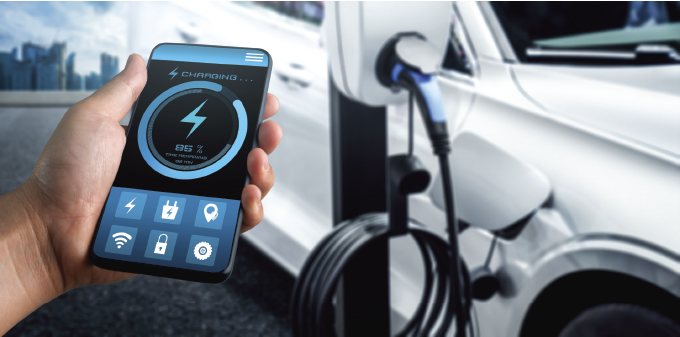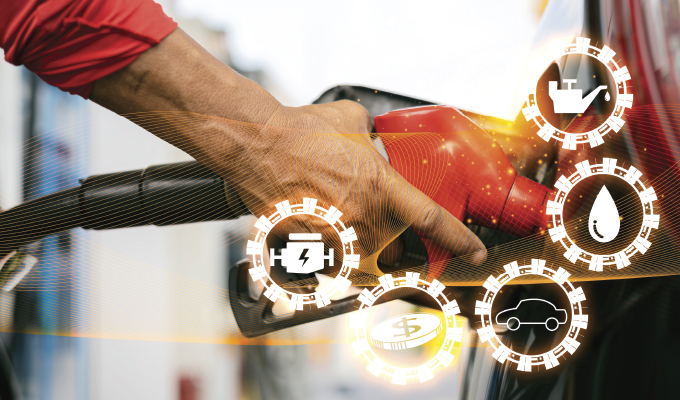Commercial trucks are a large part of production for many business owners, and truckers need their vehicles to run smoothly. Many fleet owners and managers are considering fuel-efficient trucks for their small businesses. Read on to discover:
- What makes a truck fuel-efficient?
- What fuel-efficient trucks are currently available?
- What are the advantages and disadvantages of eco-trucks?
- How much do fuel-efficient trucks cost?
The future of commercial trucks is changing to become more fuel-efficient, cost-effective, and eco-friendly. Small businesses need to adjust and keep up when updating or expanding their fleets, which can lead to saving time and money along the way.
Fuel efficiency in trucks can be achieved through a variety of methods, including using electric batteries in electric or hybrid trucks, using alternative fuels, and adjusting the truck’s design to make it more aerodynamic to limit wind resistance, ultimately using less fuel. Newer, full-size fuel-efficient electric trucks utilize multiple batteries to maintain the same torque and towing capacity as traditional trucks while keeping desirable features such as four-wheel drive, rear-wheel drive, payload rating, hauling capability, and standard safety features.
TYPES OF TRUCKS
When choosing a new truck, there are many factors to consider outside of their fuel economy ratings. Eco-friendly trucks with higher mpg city and mpg highway ratings come in various shapes and sizes, allowing truck buyers to search for the right fit.
Electric Trucks
Newer EV pickup trucks, commercial trucks, and full-size trucks have towing capacities and power compared to traditional gas-powered trucks. They require less maintenance and are cheaper to own. However, they require regular charging, which can be difficult to find outside metropolitan areas.
Hybrid Trucks
Hybrid powertrains are the middlemen of gasoline and e-trucks. These vehicles use an electric battery, but also have a combustion engine. This offers a higher gas mileage and lowers gas costs without charging the vehicle regularly. Different hybrid options vary on how much they rely on the electric battery versus traditional engine choices.
Biofuel Trucks
Biofuels have come a long way and are constantly improving. Some can even be used in a turbodiesel engine. Fuels include biodiesel, HVO, synthetic diesel fuel, ethanol, and others. Many of these are cheaper than gas and diesel, increasing truck fuel efficiency. It’s important to keep in mind that biofuel is still new and developing, meaning it can be difficult to find in many areas.
Aerodynamic Design Trucks
Trucks that utilize a more aerodynamic design limit wind resistance, allowing for a higher mpg city and mpg highway rating, resulting in lower gas costs. Aerodynamic truck shapes can be combined with any other fuel-efficient truck type or as a traditional combustion engine truck.
THE PROS
There’s a reason many companies are turning to electric and hybrid trucks for their fleets. Amazon has begun switching to electric delivery trucks, and major truck dealers are creating fuel-efficient trucks with the same power, tow rating, and other desirable features as traditional trucks. Small businesses are beginning to join larger corporations and invest in fuel efficiency.
EVs require less maintenance and associated costs and fully eliminate fuel costs. According to Truckers Report (2013), maintaining and repairing a large commercial truck can cost up to $15,000 annually. Commercial Truck Trader conducted a survey (2023) of 500 truck shoppers about electric trucks. Among those looking to purchase an EV, the top reason for doing so was the desire to spend less money on gas (44%). Other top motivators included believing electric is the future of commercial driving (38%), less engine maintenance (30%), and lower emissions (21%).
Some additional benefits include:
- Electric batteries last longer than combustion engines, resulting in trucks that last longer—3 to 8 years longer on average, as an article on EVBOX (2021) references
- All trucks that aim to be more efficient require less gas and may qualify for local tax credits, especially electric and hybrid vehicles
- Many large cities and some countries are beginning to ban diesel vehicles altogether and push for improved fuel efficiency
- As consumers look for more environmentally conscious business, using eco-friendly vehicles could attract more customers
THE CONS
The top drawback identified by Commercial Truck Trader survey (2023) participants is that they believe electric trucks had a low mileage range/short battery life. However, for businesses that have a small driving range, this should not pose a problem. There are also other large trucks being released that address this problem of long-range drives.
Other top perceived drawbacks to EVs reported by commercial truck shoppers includes charging time (49%), finding charging stations (45%), being unsure the power grid can handle EVs (41%), and the higher cost (39%).
Long charging times, cold weather, and few charging stations, especially in rural areas, would make it difficult to plan long-haul drives. Higher prices are often inhibitive to smaller companies and individual truck owners. However, the high cost may change as more vehicle manufacturers turn toward creating electric and hybrid vehicles.

ECO TRUCK COSTS
The starting price of the truck itself can vary depending on the class of truck, type of fuel efficiency, brand, and any additional features. A fuel-efficient, full-size pickup truck can range from $25,000 to over $100,000 for luxury models.
EVs require less maintenance costs in comparison to combustion engines. Batteries eventually need to be replaced, costing between $10,000 to $15,000; however, electric batteries last between 10 to 15 years, or 100,000 to 200,000 miles, before needing to be replaced. For trucks requiring charging, it costs roughly 3 cents a mile, which varies by location, vehicle, and battery type.
IN THE FUTURE
Despite the attitude among current truck shoppers toward EVs, alternate fuel-efficiency options are seen as a bridge to EVs as electric trucks continue to develop and companies try to keep up with local and federal regulations. While the demand is currently low, manufacturers are beginning to change and improve their hybrid and electric truck options.
For More Information
Find out more at www.commercialtrucktrader.com.
RESOURCES
www.thetruckersreport.com/infographics/cost-of-trucking/blog.evbox.com/ev-battery-longevity




